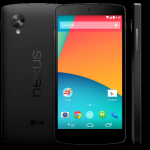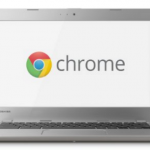Is Android TV the answer to Google's living room prayers?

Google had lots of announcements at last week's I/O conference, though most seemed to have been overshadowed by Android Wear. However, that doesn't mean that the other things weren’t important. One of the items shown was Android TV, though it may lend as much confusion as it does clarity to Google's living room strategy.
There are a couple of reasons for that. First is that the company already has Google TV, which also runs Android, though the set-top boxes based on the platform have failed to gain much traction in the market. The other, and perhaps much more pressing issue, is Chromecast.
Google has no plans to abandon Nexus devices

Google plans to make many more Nexus products despite rumors that it wants to abandon the line in favor of a partnership to work closely with Android manufacturers on bespoke smartphones.
Head of Android engineering Dave Burke confirmed that it is "still invested in Nexus" products even though Android Silver is on the way leading some to speculate that it would be the replacement for Nexus.
Facebook gives with one hand and takes with the other

Social networks are funny beasts, and this is certainly something that's true of Facebook. The site has a patchy history with regard to user privacy, and there are constant complaints about how personal content is used, who can gain access to it, and the privacy settings that are in place. But like all modern companies, Facebook likes to be seen listening to its customers -- or at least appear to listen. A recent example of 'listening to the people' is Facebook's reaction to the #FreeTheNipple campaign which ultimately led to the site bowing to pressure and permitting photos of breastfeeding to be published. There have also been numerous instances of responding to complaints and making privacy settings easier to control.
Like Microsoft, Google, Yahoo, and even the NSA, Facebook has released transparency reports that detail data requests and the like. Transparency reports are something that users all but demanded, and delivering them is excellent PR for the companies involved. Now Facebook is taking things up a notch, fighting for users' rights in court. Earlier this week it emerged that the social network is fighting a US court order which forced it to hand over user data. The data was requested as part of an investigation into benefit fraud. Facebook complied but complained that it was a violation of the Fourth Amendment.
NSA under the microscope -- agency releases "transparency" report

NSA, Snowden, spying, yadda, yadda, yadda. This story is old, I know, but it goes on. The activities of the NSA and other government agencies have forced the online world to look very closely at how its data is being used, and how the companies handling it operate. Just about every online company worth its salt has gone out of its way to bemoan the NSA, their need to comply with data requests from the agency, and their inability to reveal everything they want to about what the NSA is asking about.
We have seen "transparency reports" from Google, Microsoft, LinkedIn and numerous other companies. But as suggested by my use of quotes, and as alluded to in the opening paragraph, there have been (severe) limits to the levels of transparency we have seen. "Quite opaque" might be a better description. Still, with the world and its dog falling over one another to release the most details, most comprehensive, and most self-congratulatory report, we probably should have predicted that pressure on the NSA would reach a point at which it felt forced to show its own hand. That time has come. The microscope has been turned around, and the security agency is now laying bare its own facts and figures.
The most popular stories on BetaNews this past week: June 22 -- 28

The battle for dominance between Microsoft and Google continued, with Microsoft offering a huge storage boost for Office 365 and OneDrive users. This was quickly trumped by Google later in the week at 1/0 2014, when the company announced unlimited storage for Google Drive for Work users. Microsoft is basking in the glory of being heralded as cooler than Apple by Joe -- and stunts like offering cashback deals to sway MacBook Air owners into switching into Surface Pro 3 certainly helps. Microsoft opened a new store on Long Island, while Google branched out into new territory with a trial run of a new domain registration service. Microsoft also ventured into new waters with its first Android smartphone, the Nokia X2.
In something of an interesting twist, Microsoft opted to use Opera Mobile as the default web browser. Opera is also returning to Linux after the surprise release of Opera 24 Developer. Linux Mint 17 "Qiana" KDE was also released. Linux also managed to hit the headlines for facilitating the hacking of Google's Nest thermstats. If this hasn’t put you off, Logitech added support to its Harmony remotes.
The Secret of Google X

"All politics is local," said House Speaker Tipp O’Neill, meaning that every politician has to consider the effect that his or her positions will have on voters. What makes perfect sense on a national stage might be a disaster back in the district, where the actual voters live. And so it is, too, with big companies, where local impact is sometimes more important than national or international. Sometimes, in fact, companies can be completely re-routed solely to please or affect a single executive. I believe we are seeing precisely that right now at Google concerning Google X.
Google X is that division of the search giant responsible for self-driving cars, Google Glass, and the prospect of hundreds or thousands of balloons floating through the stratosphere bringing Internet service to grateful Polynesians. It’s those balloons, in fact, that led me to this topic.
Amazon makes paid Android apps free for two days only -- download them ASAP!

While the Amazon Appstore's app selection is not as abundant as the Google Play store, it does have many premium apps. One of the most endearing qualities of Amazon's store is that every day, it offers one paid app for free. If you check it every day, you can discover some great and not-so-great apps. However, it is tedious to check it every day and easy to forget too.
Today, Amazon is deciding to be generous and delivers 31 awesome paid apps for free. That's right, you pay nothing for 31 apps that combined would normally cost over $100. There must be a catch right? Well, sort of -- they are only free for two days. Read on to take advantage.
How to install Android L preview on your Nexus 5, 7

At the I/O 2014 conference, Google showcased the latest version of Android, known only as L until its official launch later this year. Compared to its predecessor, KitKat, it comes with 64-bit support, design changes, the ART runtime running the show, tightened security, battery life and performance improvements, notifications tweaks, new APIs and more.
Android L may not yet be ready for prime time, but a preview version is now available for Nexus 5 and Nexus 7 (2013 Wi-Fi model), giving users the option to get comfortable with the slew of changes it introduces. Here is how you can download and install it.
Google Cardboard is a real thing -- strap a smartphone to your face

Google is a cool company. Regardless of what you think about its services or products, you cannot deny the cool-factor that it has. However, can a person or company be too cool? What I mean is, can the cool actions become tiring and possibly even annoying? Remember when Fonzie jumped over a shark on Happy Days?
I'm not saying Google "jumped the shark", but today, the search-giant may have crossed the line into being a parody of itself with a new project called Cardboard. The name is quite literal -- Google wants users to fold cardboard in the shape of a face mask that will ultimately turn the user's smartphone into a makeshift virtual-reality mask. Yes, Google is asking us to strap a smartphone to our faces. Umm, cool?
Google brings the marriage of Chrome OS and Android closer

Ever since Google released its two operating systems -- the one for computers and the one for phones and tablets -- users have talked of a merger of the two. So far that hasn't happened, and at Google I/O today it still didn't. But things got a bit cozier.
The company unveiled closer integration between the two platforms, bringing phone notifications to your computer. Is your phone ringing? Your Chromebook will popup a notice telling you who it is. Got a text message? That too will appear on your notebook. In fact, Chromebooks will even notify you of low battery life on your mobile device, letting you know it's time to charge it.
Google revs up Android Auto, its Apple CarPlay rival

As expected, one of the big new announcements at Google’s I/O conference was Android Auto which takes Google’s mobile operating system into vehicles.
Android Auto runs on your smartphone but the apps and features are mirrored and can be controlled through a touchscreen in the vehicle. The car-specific interface is a simplified version of the forthcoming (and unnamed) Android L release, with larger less distracting 'touch targets'.
Google brings out the big guns -- unlimited storage for $10 per month and Office editing

At I/O 2014 Google announced that more cloud storage will be made available to space hungry users. Google Drive for Work has a price tag of $10 per month and includes not just more cloud storage, but unlimited cloud storage. Well, there is one limitation; individual files cannot exceed 5TB, but this is, for all intents and purposes, a deal that is unlimited by most people's understanding of the word. As the name suggests, this is a product that is aimed at businesses, but at this price it is hard to imagine that there won’t be swathes of home users looking to take advantage of the package.
A few months back, Google slashed the cost of its cloud storage packages, but today's news is something quite different. Worries about security may be allayed by the news that Drive, Gmail and Calendar data will be encrypted at data centers. IT admins will also be able to audit and control options, that means internal security policies can be implemented as required.
Watch the Google I/O 2014 keynote here

It's a big day for Google as the search giant's annual developer conference kicks off with what promises to be a very exciting keynote.
So what can we expect Google to unveil later today? Well it’s a good bet we’ll be treated to news of Android 5.0 Lollipop (or some other sweet beginning with L -- Liquorice, Lemon Meringue Pie, Lion Bar, or Lifesavers are possibilities too). Hardware that might be announced include a new Nexus 10, the Nexus 8, Google Android Wear watches, Google Project Tango tablets, the modular Project Ara smartphone, the Google Auto Link in-car system, and a set top box to rival Apple TV.
ID stealing cloned banking app found on Play Store

A cloned banking app which steals user login credentials has been discovered on the Play Store this week. Mobile security company Lookout discovered the app and informed Google which immediately removed it.
The malware, called BankMirage, targets the customers of an Israeli bank called Mizrahi Bank -- the fourth largest in the country. The authors of the app placed a wrapper around the bank's legitimate app and redistributed it on the Google Play store, pretending to be the financial institution.
Google announces better Glass, new Glassware

Following feedback received from early adopters (known as Explorers), Google has announced a significantly revised Glass wearable. But, unlike prior iterations, it looks like this one will not be available as a free-of-charge upgrade for current users, who will now have to pay full price to get the latest and greatest.
The improved Google Glass is touted to offer better performance courtesy of a RAM capacity increase to 2 GB, which is 1 GB more than before (prior versions only allowed 682 MB of RAM to be effectively used, making the difference quite substantial). There are also more Google Now cards available, which will display extra information like shipping delivery estimates and car location.
Recent Headlines
BetaNews, your source for breaking tech news, reviews, and in-depth reporting since 1998.
© 1998-2025 BetaNews, Inc. All Rights Reserved. About Us - Privacy Policy - Cookie Policy - Sitemap.